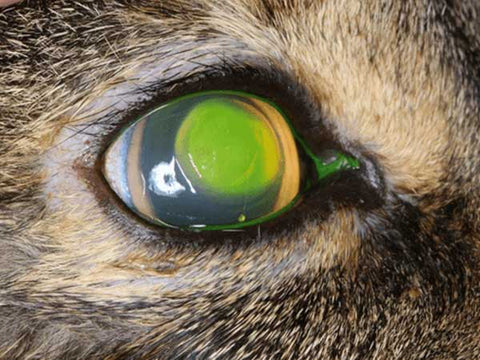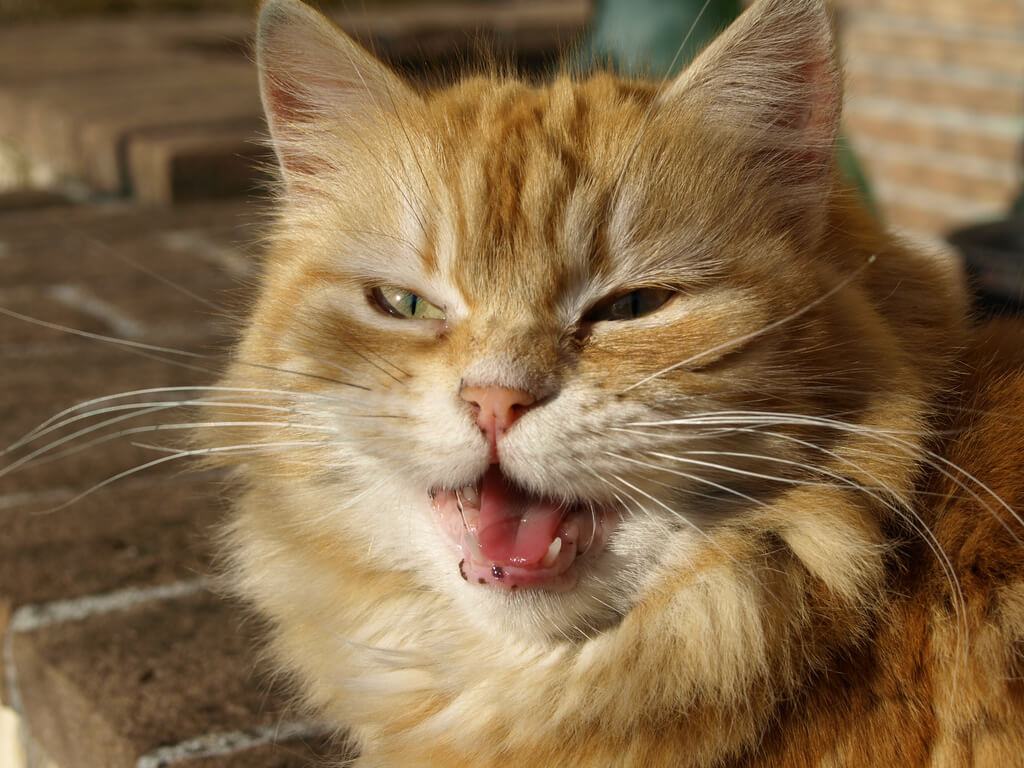You might be wondering, can cats get colds? The answer is a definite yes! Cats can catch colds just like humans do. They exhibit similar symptoms such as sneezing and a runny nose. While cat colds are usually not too serious, they can sometimes lead to more severe infections. So, understanding the causes, symptoms, and preventive measures can really help keep our cats healthy and happy.
How Did My Cat Catch a Cold?
Cat colds, also known as feline upper respiratory infections (URIs), are usually caused by bacteria or viruses. The majority, around 90%, are due to two common viruses: feline herpesvirus (FHV-1) and feline calicivirus (FCV). Bacterial infections are less common but can still play a role.
Viral Causes
-
Feline herpesvirus (FHV-1):
-
Caused by herpesvirus type 1, also known as feline viral rhinotracheitis (FVR).
-
Symptoms may include severe eye issues, like conjunctivitis and corneal ulcers, and breathing problems.
-
Can remain dormant in infected cats and flare up periodically, leading to recurring symptoms.
-
Known for causing severe eye problems more often than FCV.
-
Feline calicivirus (FCV):
-
Caused by a calicivirus, also called feline calicivirus disease (FCVD).
-
Symptoms may include oral ulcers, breathing difficulties, joint pain, and fever.
-
Severity varies from mild respiratory illness to severe issues like pneumonia and mouth ulcers.
-
Often linked with mouth ulcers and joint pain, though breathing problems are common too.
Both FHV-1 and FCV cause respiratory infections in cats, but they differ in symptoms. They're highly contagious but not transmissible to people. Cats infected with either virus may experience recurrent flare-ups throughout their lives, especially during periods of stress.
Bacterial Causes
Secondary Infections: Bacterial infections can occur as a complication of a viral cold, making symptoms worse and delaying recovery.
Transmission Modes
-
Direct Contact: Close interaction with infected cats by touching, grooming, or sharing.
-
Indirect Contact: Sharing contaminated food/water bowls, bedding, or litter boxes.
-
Airborne Transmission: Sneezing or coughing releases virus particles into the air, infecting nearby cats.
-
Vertical Transmission: Kittens can get colds from infected mothers during birth or nursing.
Understanding these modes of transmission can help you implement preventive measures and protect your furry companions from contracting colds.
How Do I Know If My Cat Has a Cold?
If your cat has a cold, you may notice one or more of the following symptoms:
-
Coughing
-
Sneezing
-
Runny Nose
-
Watery Eyes
-
Lethargy
-
Decreased Appetite
-
Fever
These symptoms may vary in severity and duration depending on the underlying virus and the cat's overall health.
What Can I Give My Cat for a Cold?
Here are a few more tips to help your cat feel better during a cold:
-
Use a humidifier to ease breathing.
-
Wipe your cat's nose with a warm, damp cloth for congestion relief.
-
Clean their watery eyes with a saline solution and gauze pads to soothe them.
-
Keep them warm with extra blankets.
-
Ensure they have plenty of fresh water to drink.
-
Offer tasty, easy-to-eat food. Warm it up if needed.
-
Create a calm, stress-free environment for rest, and consider using pheromone products.
-
Cat cold treatment usually involves antiviral drugs like famciclovir or lysine, which help reduce viral activity and symptoms. Remember, always consult your vet before giving your cat any medication.
-
If you have multiple cats and one is sick, consider isolating the sick cat to prevent the spread of illness to others. Provide them with their food, water, and litter box in a separate room until they recover.
When Should My Cat See a Vet?
Most cat colds will resolve on their own within a few days. However, If your cat's symptoms last or get worse after 4 days, it's time for a vet visit. Severe symptoms like difficulty breathing, persistent coughing, or refusal to eat. Additionally, older cats, kittens, unvaccinated cats, and those with underlying health conditions or weakened immune systems may be at higher risk of complications and should be evaluated by a veterinarian promptly.
Veterinarians typically diagnose cat colds based on clinical signs and may perform diagnostic tests such as:
How to Prevent Cat Colds
Vaccination
Unvaccinated kittens and older cats are most at risk of catching cat colds. Vaccines are available for both viruses and are essential for kittens and adult cats. Although vaccines may not prevent infection entirely, they help reduce symptoms and prevent serious illness.
Environmental Modifications
Cat colds spread through contact with infected cats or contaminated items. Cats in outdoor or crowded spaces, like shelters or homes with multiple cats, face a higher risk. Modifying the environment helps prevent respiratory infections. This involves ensuring good ventilation, clean litter boxes, and minimizing exposure to allergens. Additionally, stress weakens cats' immune systems, making them more prone to infection. Provide a calm, quiet space where your cat can retreat and feel safe. Engage your cat in interactive play sessions to provide mental stimulation and alleviate boredom.
Interactive Deformable Cat Toy with Bell Ball
Nutritious Diet
Providing a nutritious diet can help bolster your cat's immune system and reduce their susceptibility to respiratory infections.
Regular Veterinary Check-Ups
Regular vet check-ups are essential for preventing and spotting cat colds. Vets check overall health, give vaccines, and offer tailored advice. Early detection means quick treatment and fewer complications.
Cat Colds FAQs
-
How Do Indoor Cats Get Colds?
Indoor cats can get colds through exposure to other infected cats, contaminated objects, or viruses carried by humans.
-
Do Cat Colds Go Away on Their Own?
Yes, cat colds typically go away on their own within a few days to a couple of weeks. Most cases of cat colds resolve without the need for medical intervention. However, if the symptoms persist or worsen over time, it's advisable to seek veterinary care for further evaluation and treatment.
-
How Long Does a Cat Cold Last?
The duration of a cat cold can vary depending on factors such as the severity of the infection and the cat's overall health. According to data from veterinary clinics, mild cat colds may resolve within 1-2 weeks with proper treatment and supportive care, while more severe cases may take longer to recover.
-
Does My Cat Have Allergies or a Cold?
Allergies and colds share similar symptoms, such as sneezing, watery eyes, and coughing. However, allergies tend to be chronic and may occur consistently or in response to specific triggers, such as pollen or dust. Unlike colds, allergies often involve additional symptoms like digestive upset or skin irritation. If you're unsure about the cause of your cat's symptoms, consult your veterinarian for a proper diagnosis.
-
Should I Keep My Sick Cat Isolated from Other Cats in the Household?
Yes, it's advisable to isolate a sick cat from other cats in the household to prevent the spread of illness. Data from veterinary clinics suggests that respiratory infections in cats can be highly contagious, and isolating the sick cat can help minimize the risk of transmission to other feline companions.

























